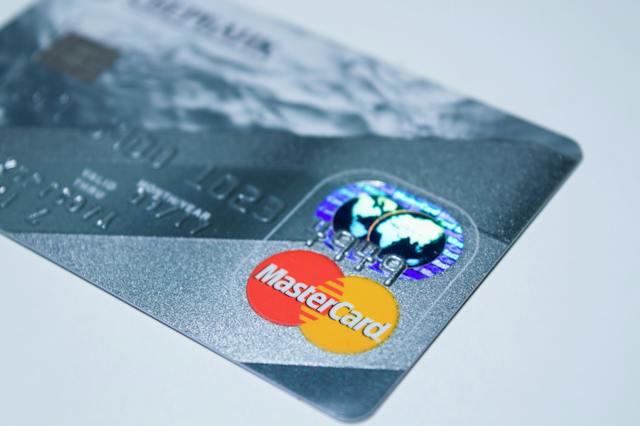How to Stick To A Budget Season 14 Ep11 Sticking to a budget during home

Sticking to a budget during home improvement projects can be challenging but is essential for keeping your finances in check. Start by setting a clear budget based on your overall financial situation and the scope of your project. Break down your budget into specific categories, such as materials, labor, and unexpected expenses, allowing for a little wiggle room for surprises. Prioritize essential upgrades over cosmetic changes to maximize your investment. Use DIY methods where possible to save on labor costs, and shop around for the best deals on materials, taking advantage of sales and discounts. Regularly track your spending against your budget to identify any areas where you may be overspending, and adjust as needed. With careful planning and discipline, you can achieve your home improvement goals without breaking the bank Sticking to a budget during home
Title: Mastering Budgeting in the UK Sticking to a budget during home
Slide 1: Introduction
- Welcome
- The Importance of Budgeting
- Overview of Sticking to a Budget
Slide 2: Why Budget?

a. Financial Awareness
- Understanding Income and Expenses
- Identifying Spending Habits
b. Goal Achievement
- Saving for Big Purchases
- Building Emergency Funds
- Reducing Debt
Slide 3: Creating a Realistic Budget
a. Assessing Income
- Monthly Salary, Bonuses, Other Income
- Ensuring All Sources Are Included Sticking to a budget during home
b. Identifying Fixed Expenses
- Rent/Mortgage, Utilities, Loan Repayments
- Consistent Monthly Costs
c. Variable Expenses
- Groceries, Entertainment, Dining Out
- Estimating Based on Past Spending Sticking to a budget during home
Slide 4: Setting Financial Goals

a. Short-Term Goals
- Monthly Saving Targets
- Reducing Non-Essential Spending
b. Medium-Term Goals
- Saving for Holidays or Special Events
- Reducing Debt
c. Long-Term Goals
- Saving for a Home, Retirement
- Investing for the Future
Slide 5: Track Your Spending
a. Expense Tracking Apps
- Utilizing Budgeting Apps (e.g., YNAB, Mint)
- Categorizing and Analyzing Spending
b. Regular Review
- Weekly or Monthly Review of Expenses
- Adjusting Budget as Needed
Slide 6: Prioritize and Cut Unnecessary Expenses

a. Identifying Non-Essential Spending
- Entertainment, Impulse Purchases
- Subscriptions, Eating Out
b. Allocating Money to Priorities
- Prioritizing Savings and Debt Repayment
- Allocating Money to High-Priority Categories
Slide 7: Emergency Fund
a. Importance of an Emergency Fund
- Unexpected Expenses and Emergencies
- Avoiding Breaking the Budget
b. Building the Fund
- Allocating a Percentage of Income
- Incremental Increases Over Time
Slide 8: Avoiding Impulse Purchases
a. Creating a Shopping List
- Planning Purchases in Advance
- Reducing Unnecessary Spending
b. Delayed Gratification
- Waiting Period Before Non-Essential Purchases
- Evaluating the Necessity of the Item
Slide 9: Use Cash or Debit Cards

a. Limiting Credit Card Use
- Reducing the Risk of Overspending
- Tracking Spending More Effectively
b. Cash Envelopes
- Allocating Cash for Variable Expenses
- Visualizing Spending Limits
Slide 10: Seek Accountability
a. Budgeting Buddies
- Sharing Goals with Friends or Family
- Encouraging Each Other to Stick to the Budget
b. Financial Advisor
- Seeking Professional Guidance
- Adjusting Budget Based on Expert Advice
Slide 11: Celebrate Milestones

a. Recognizing Achievements
- Meeting Savings Goals
- Reducing Debt
b. Rewards
- Small Treats for Staying on Budget
- Reinforcing Positive Financial Habits
Slide 12: Review and Adjust Sticking to a budget during home

a. Regular Check-Ins
- Monthly Budget Meetings
- Analyzing Spending and Adjusting Goals
b. Life Changes
- Adapting Budget for Life Events
- Job Changes, Family Additions, etc.
Slide 13: Conclusion
- Recap of Key Points
- Empowering Financial Control Through Budgeting
- Achieving Financial Stability in the UK
Slide 14: Q&A
- Inviting Questions from the Audience
Thank You!
- Contact Information
- Follow-up Resources
- Closing Remarks
Think of this podcast as if you are sitting and chatting with friends. A lot of business tips and advice on how I progressed from my 9-5 office role to a Director of my own company. There will be banter about success and financial freedom the odd motivational speech to also give you a boost. I will share thoughts on various subjects and use this to document my career journey occasionally joined by guests. be sure to reach out if you have any questions. Resources:
This Season has its own dedicated show notes and resources on my website – www.ZulfTalks.com.
I will only send you emails relating to the topics I talk about in my podcast/show
My Business Working for Yourself podcast is powered by TrustedCreators.org.
Clarity
📣: The information talked about in this episode is not financial advice or recommendations. The information does not constitute financial advice or recommendation and should not be considered as such. I am not regulated by the Financial Conduct Authority (FCA), therefore not authorised to offer financial advice. Do your own research and seek independent advice when required.
📣Views and opinions expressed in this episode by the guests and or speakers are those of their own and do not necessarily reflect the views of Zulftalks.com or TrustedCreators.org. Having guests on this podcast does not endorse them, their services or their products.
🎯Disclaimer: Please see the link for our disclaimer policy for all of our videos on the TrustedCreators, ZulfPhotography and other encompassed channels created by TrustedCreators LTD here- https://trustedcreators.org/disclaimer/


